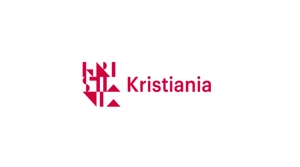Search
Filters
Filters
Results
- Slow Danceen / research / research-groups / ecosystem / research / slow-danceThrough the use of VR/XR, media art, collaborative practices and various choreographic strategies, Slow Dance seeks to answer the following research questions: How can collaborative processes of developing choreography with the use of VR technologies look like? What affordance do VR/XR technologies have for developing choreography for online performances, physical performances and hybrid performances? Our project endeavors to advance the understanding and utilization of virtual embodiment in collaborative creative processes, with the overarching goal of minimizing the necessity for travel within the creative industries while promoting global perspectives and fostering international collaborations to enrich the media art and performance scene. Core team: Marie Dahlén – Co-project leader, project management; technical and VR expertise Signe Alexandra Domogalla – Principal Investigator, project management; Choreography and dancer We are in the process to apply for external funding and find external partners and collaborators.

- Participants needed for the research project “FactArt: Samfunnet ser”en / research / research-groups / research-trauma-study-need-participantsParticipants needed for the research project “FactArt: Samfunnet ser”

- Supply Chain Management (SCM)en / research / research-groups / supplychainSupply Chain Management (SCM)
- Health Psychology and Mental Health Promotionen / research / research-groups / health-psychology-and-mental-health-promotion
- Publishing Supporten / research / researchsupport / publishing-supportG uidelines and support materials for researchers planning to publish in scientific , peer-reviewed publications .
- Development of International Collaborative Projectsen / research / internationalisation / development-of-international-collaborative-projects
- Partners and Advisory boarden / research / research-groups / kai-centre / partners-and-advisory-board
- Contact research supporten / research / researchsupport / contact-research-support
- Conduct a research projecten / research / researchsupport / conduct-research-project
- Phygital Laben / research / research-groups / phygital-lab
- Information Security Policyen / for-students / it-support / it-security-and-reglations / ismsThe information security policy for Kristiania University College and Kristiania Professional College.
- Overview of Exchange through Erasmus+en / for-students / outgoing-exchange-students / overview-of-exchange-through-erasmusOverview of Exchange through Erasmus+
- Electives for mastersen / for-students / valgemner-og-praksis / electives-for-masters

- How to cite to artificial intelligenceen / about-kristiania / library / academic-writing-and-citation / Artificial-intelligenceIs generative AI a source? The information created by generative artificial intelligence (AI), like Sikt KI and Copilot is not a source. These programs are tools intended for generating and rendering text based on the information it has been trained on. However, there are cases where it is appropriate to use the information generated by AI, and therefore cite it as if it were a source. Then you should refer according to the rules of the referencing style. If you do this, you are responsible for ensuring that the information is correct. Use good information literacy, be aware of false sources and that it will be difficult to find the primary source using generative AI. How to refer to AI with the Chicago style Click on the link above to see how to refer to generative AI in Kristiania University College's guide for the Chicago style. How to refer to AI with the APA style Click on the link above to see Kildekompasset.no instructions on how to refer to generative AI with the APA style.
- 3. Collection and Processingen / about-kristiania / library / Research-support-library / research-data / 3.-collection-and-processingContent on this page Introduction Tools for Data Collection Tools for Processing and Analysis Tools for Collecting and Processing Sensitive Data High-Performance Computing (HPC) Programvarekatalog en
- Consumer Behavior Research Groupen / research / research-groups / consumer-behavior-research-group
- Work Integrated Learning (WIL)en / research / research-groups / work-integrated-learning-wil

- Research on Performing Artsen / research / research-groups / forskning-pa-scenekunst
- Typ-0. Laben / research / research-groups / typ-0.-lab
- Lift competenceen / business / lift-competence